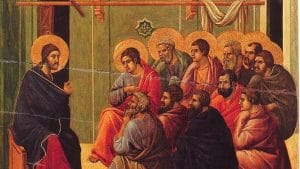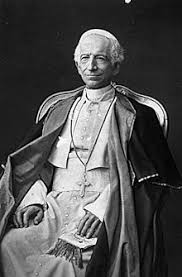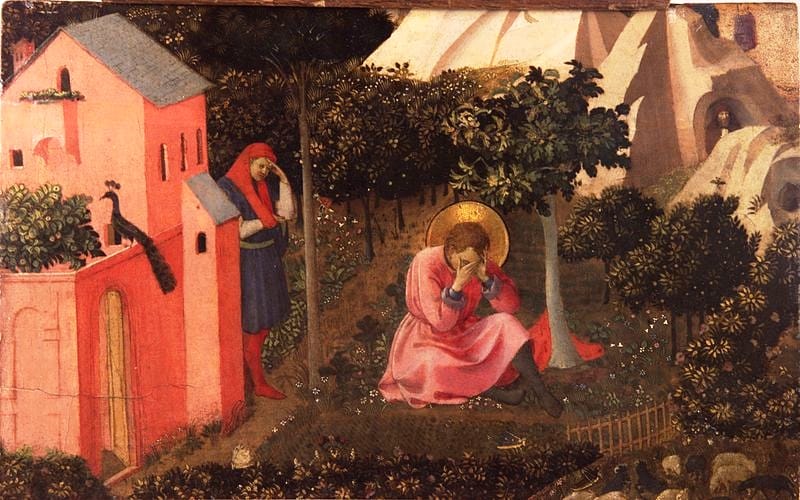It is axiomatic that those who can’t control themselves will always be controlled by someone else. This axiom is on display in our own day as we continue to see democracy be overthrown by oligarchy. A virtuous populace can thrive under a democratic system. Any system of self-government requires a people who are capable of governing their own desires. Once that power is lost individually and vice takes over, mobs are sure to follow. The problem with mobs however is that they really can never organize and so an oligarch must step in to incite and organize the mob. Thus, democracy moves from mob rule to oligarchy very quickly. Our own day bears witness to these principles in action as democracy dies and oligarchy takes over. If we are to arrest this development, then we must examine its causes. Every social ill has as its root cause personal vice and there is one vice that seems to be baked into our society—avarice. We should not be surprised at this fact given that St. Paul matter-of-factly proclaims that “love of money is the root of all evil” (c.f. 1 Timothy 6:10) and the Christian Tradition since Gregory the Great has considered it as one of the Seven Deadly Sins.
Despite tradition’s testimony to the contrary, our own culture insists there is no sin in avarice. That is because it is baked into the American Experiment. Founded on a class-less basis, class became something that was earned and prosperity was the first form of virtue signaling. As Tocqueville said public fortune became synonymous with greed. To condemn greed is to suffer the label of Socialist. For those who are willing to wear that label proudly, they always do so while hiding their 10,000 square-foot houses behind hedges and gates. These modern-day hypocrites make the Pharisees seem tame.
What is Avarice?
What then is greed and why does it cause such social evil? St. Thomas says that, “avarice is taken generally for an inordinate love of having anything whatsoever, and in another way particularly for love of having possessions all of which are comprehended under the name of money because their value is measured by money…avarice signifies a certain defect in regard to the dispensing of wealth and a certain excess in regard to its acquisition and retention because of an excessive love of money” (De Malo, XIII). Mere desire for possessions and money is not evil, but instead an inordinate love of them is. This inordinate love occurs when the desire to possess a thing or thing goes beyond need (this includes the “need” for saving and reasonable luxury). Rather than getting caught up as to where the line between reasonable and inordinate is, we should instead look to the interior of what it is that actually motivates us in our greed.
What makes greed particularly deadly is the fact that it kills our recognition of our creaturely status. All of us crave security. Rightly ordered, we know that this security is limited and so we must trust and hope in God and His promises. This is why the Dollar Bill has the motto In God We Trust on it. But given enough material prosperity, and more importantly, enough money, we begin to think our security is founded upon the ability to monetarily weather any storm. This craving for security leads to an insatiable desire for money because money gives us the appearance of having control. Greed then become all about control and grasping at a God-likeness that is rooted in Original Sin.
Personal greed also spills over to other people because it is opposed to both generosity and justice. It really is more blessed to give than to receive (c.f. Acts 20:35) because it keeps us from falling into the greed trap. The virtue of generosity conditions us to draw pleasure from giving rather than getting. One can hardly imagine God allowing a person to outdo Him in generosity so that they give away too much.

Likewise with justice. The tight-fistedness of greed always keeps us from ensuring that our neighbor receives what is due to him. For the avaricious man, relationships are fundamentally competitive rather than complimentary. Each slice of the pie that you receive is one less that I can have. In this way avarice also becomes deadly for other people. Accustomed to measuring everything in terms of costs, there is an emphasis on having over being. Utilitarianism, rooted in greed is, as Pope St. John Paul II, at the heart of the Culture of Death—”“This culture [the Culture of Death] is actively fostered by powerful cultural, economic and political currents which encourage an idea of society excessively concerned with efficiency…only goal . . . the pursuit of one’s own material well-being” (Evangelium Vitae, 12).
Extending Control
It is also deadly to others in a less obvious way. Buoyed by unbridled Capitalism and fed by insatiable greed, the avaricious man, accustomed to thinking he has absolute control over his life, now sets his sights on other people. Having many zeroes in their bank accounts, they now decide they will play the hero for others. But this playing of hero is just that, mere play, even if they label it as philanthropic. This philanthropy however is always motivated by a desire to control other people. It is literally a Messiah-complex thinking that they can save the world on their own terms. America seems to breed these “philanthropists” throughout the ages, be it Carnegie and Rockefeller or Gates and Bezos.
Greed creates the oligarchs and greed is what makes the mob malleable to their manipulation. Convinced that the only way to be free from the grasp of the oligarchs is by having their own resources, they remain under their thumbs. Greed generates “class” warfare and Socialism becomes the weapon to pit the greedy plebs against each other. In truth however the only way to be free is the same way it has always been—become men and women of virtue. The virtuous always remain free because they are immune to such manipulation. Armed with generosity and justice, they are not only counter-cultural, but culture changers.














